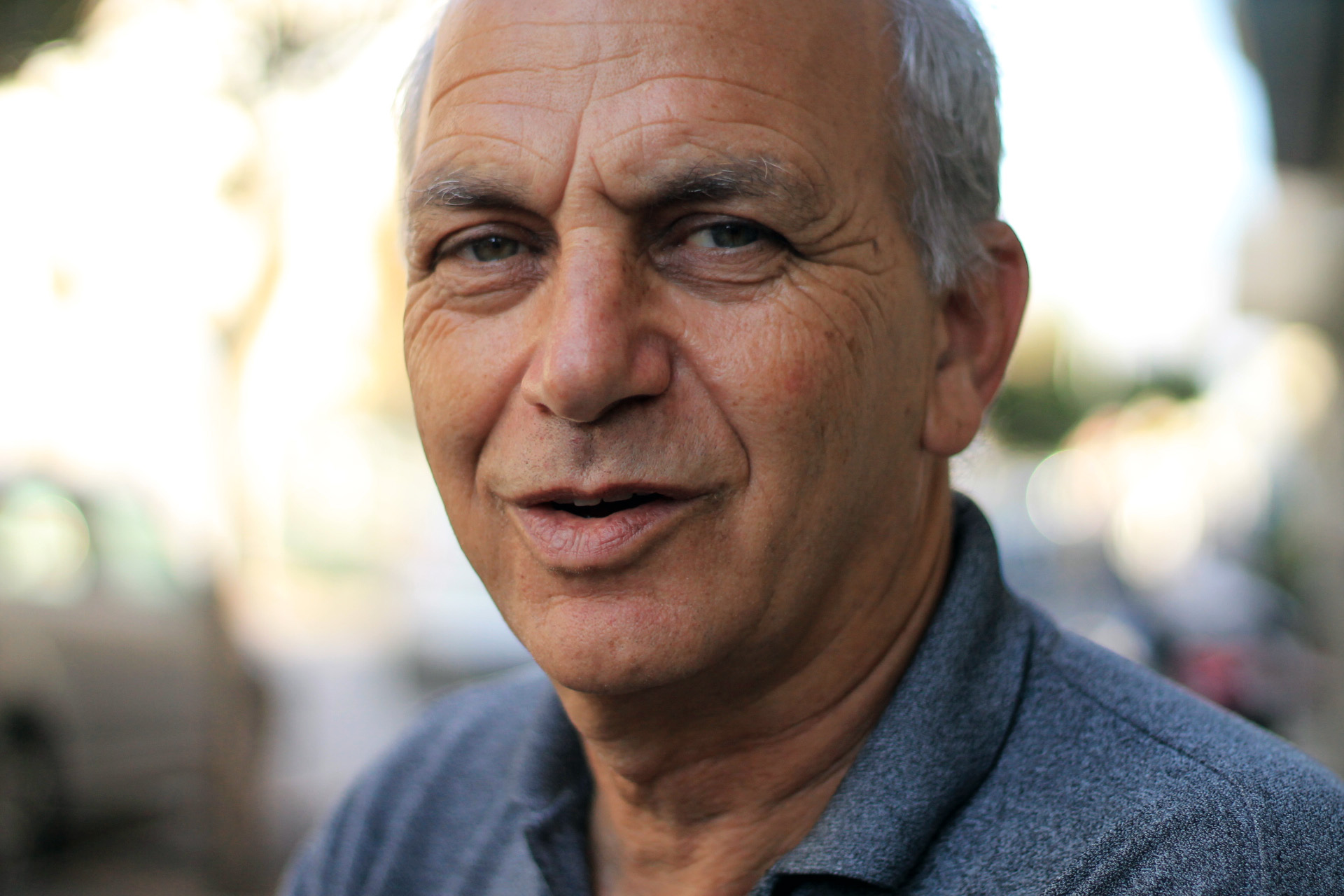
Laura van Rij (LR): What is your connection to Lifta?
Shmuel Groag (SG): I used to work for the office that is responsible for the building plan. I used to think it was a good idea. I thought about it more pragmatically, just about the physical structure. What really changed my perspective is looking at the people behind the houses. Now I am part of the Coalition to save Lifta.
LR: How did the plan look like?
SG: Basically, it was a preservation plan. Okay, it´s a building plan, but part of the village would still be there. The thing is, it would be an Israeli village, for rich American Jews. It would be absurd, them living there in a kind of gated community, in a Palestinian village.
LR: What do you think is the most special place in Lifta?
SG: It´s a very romantic place. It´s the only place in Israel where you can still see a Palestinian village, frozen in time in 1948. A lot of it is destroyed but there are still a lot of remains so you can still imagine what the old village looked like. It´s a unique cultural heritage site.
LR: Did you have conversations with ´the people behind the houses´, the former residents?
SG: I think I changed my mind when I met the Liftawi´s. I didn´t know they were living in Jerusalem. I saw real people, connected to the real houses, that dialogue was what changed me… at that time I changed my mind about conservation in general. You can't deal only with the physical part, you have to talk to the people connected to the buildings as well. This was never debated.
LR: People didn´t know, or they didn´t want to know?
SG: There is a tradition in Israel, you also see this in old Jaffa for example, to renovate and keep the Palestinian houses, but to not speak about the people who used to live in them. You´re not supposed to talk about the people to whom those houses once belonged. It´s a difficult issue. We can easily talk about the German Colony in Haifa, who they were, what they did, but we are not talking about the Palestinian owners of the houses. The issue with Lifta is that you cannot hide history there, it´s very clear what it used to be.
LR: Still some people told me they had no idea what it was.
SG: Yes, some people think it was from Roman times. They talk a lot about the biblical history of the village. They are trying to change the narrative.
LR: Did your image of Lifta change over time?
SG: Not really, but I have more information now. I know now for example that the village was much bigger than what you see now. First I thought that what you see now is the size of the village before 1948. It´s very picturesque, especially in the spring when the almond trees are flowering. Those same almond trees destroy the village because they grow from the walls. They make the walls break with their roots. It´s beautiful and destructive at the same time.
LR: What do you think will happen to Lifta?
SG: I think that nothing will happen. I think the building plan is such a disastrous project that even a lot of architects start to see that the coalition is so strong that especially building a gated community here is a big mistake. It is a disaster to start building in a place that is so significant to so many people.
LR: How would you like to see the village in the future?
SG: Nothing. I would like to stabilize the place, stop the houses from falling apart. Try to rebuild the gardens maybe. Stop the destruction but make sure that people can visit the village. Not exactly like a museum. People will say it is a museum but I think it should be like a cultural landscape. Off course you will have the experience of going to a museum, but it´s not really a museum.
LR: A lot of people want to preserve it.
SG: It´s interesting, even when I went to court with the Lifta coalition, the ultraorthodox guard at the gate said he hoped I would succeed because he liked walking around Lifta so much. So yes, a lot of different people have a connection to it.

